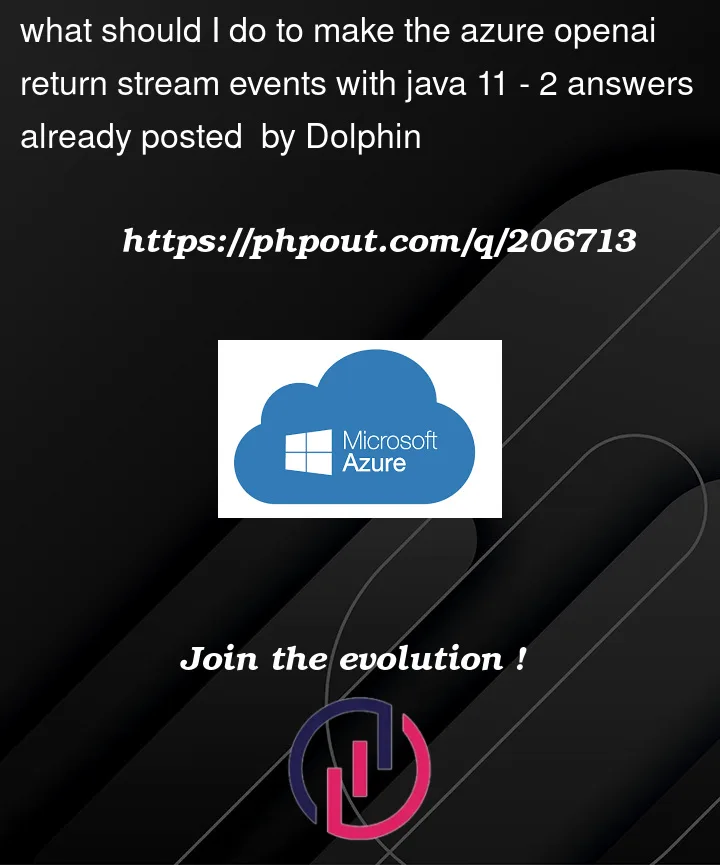I am using this code to return a stream response when using azure openai api:
public void getChatCompletion(SseEmitter emitter, String prompt, String azureOpenaiKey) {
String endpoint = "https://xxxx.openai.azure.com/";
String deploymentOrModelId = "xxx-ai";
OpenAIClient client = new OpenAIClientBuilder()
.endpoint(endpoint)
.credential(new AzureKeyCredential(azureOpenaiKey))
.buildClient();
List<ChatMessage> chatMessages = new ArrayList<>();
chatMessages.add(new ChatMessage(ChatRole.SYSTEM).setContent("You are a helpful assistant."));
chatMessages.add(new ChatMessage(ChatRole.USER).setContent(prompt));
ChatCompletionsOptions options = new ChatCompletionsOptions(chatMessages);
options.setStream(true);
options.setModel("gpt-3.5-turbo-0613");
IterableStream<ChatCompletions> chatCompletions = client.getChatCompletionsStream(deploymentOrModelId, options);
chatCompletions.forEach(completions->{
try {
emitter.send(completions);
} catch (Exception e) {
log.error("send emit message error", e);
}
});
}
this code works but I found it is not a stream result, it still look like a http reqeust, send a request and return the full response onece, is it possible to return the response words by words? I have already read the official demo: https://learn.microsoft.com/en-us/java/api/overview/azure/ai-openai-readme?view=azure-java-preview#chat-completions. Am I missing something? This is my java dependencies using gradle:
implementation'com.azure:azure-ai-openai:1.0.0-beta.2'




2
Answers
Finally I found a better way to return stream response, change the client to async to get fast response:
Many thanks to Dolphin.
When I call Azure OpenAI Java API refer to azure openAI offical doc, the response is:"resouces not found (404)", I am really going crazy.
After adding something like "options.setModel("gpt-3.5-turbo-0613")" in my code, it finally works.
If I didn’t see "options.setModel()" in your post, it might take a few days to find the real answer.
I did not find any ".setModel()" code snippet in the Azure openAI Java docs or other azure offical demo.Just for my curiosity,where did you find this code?